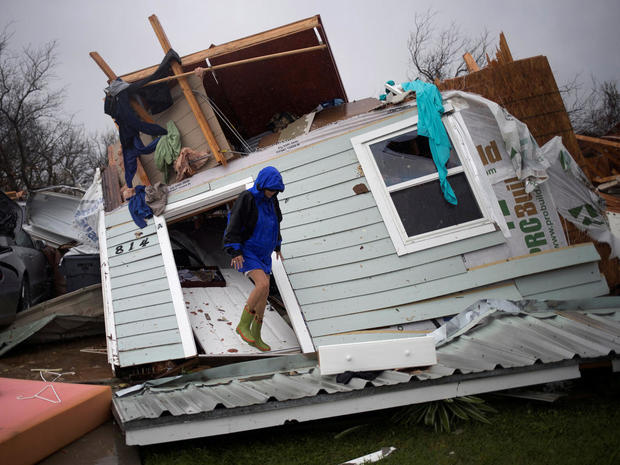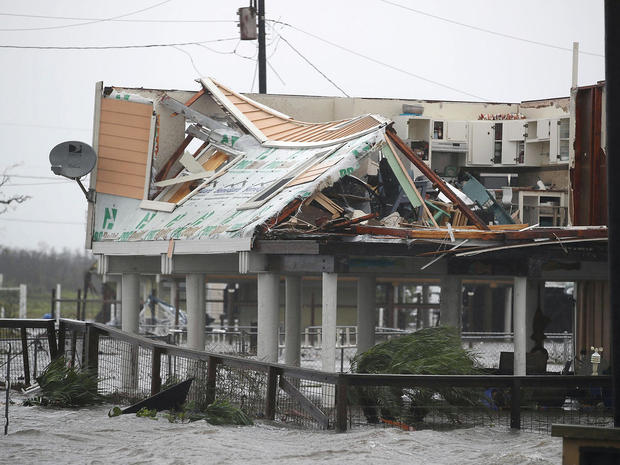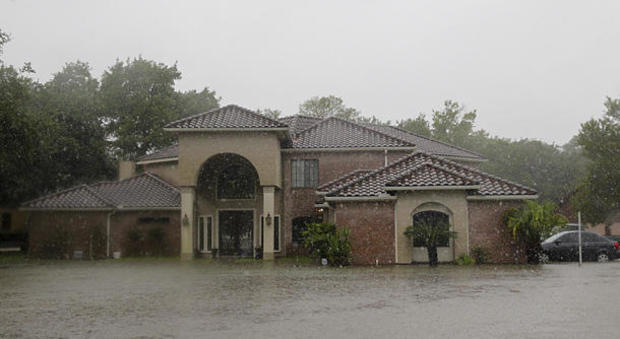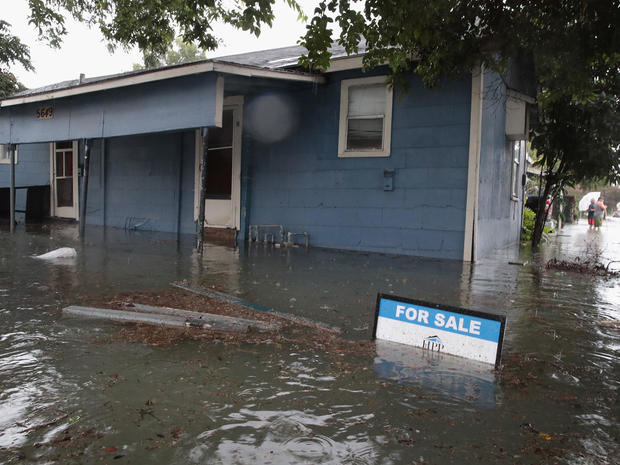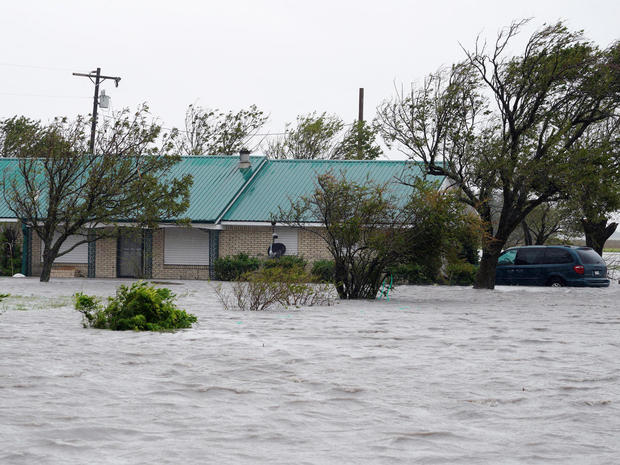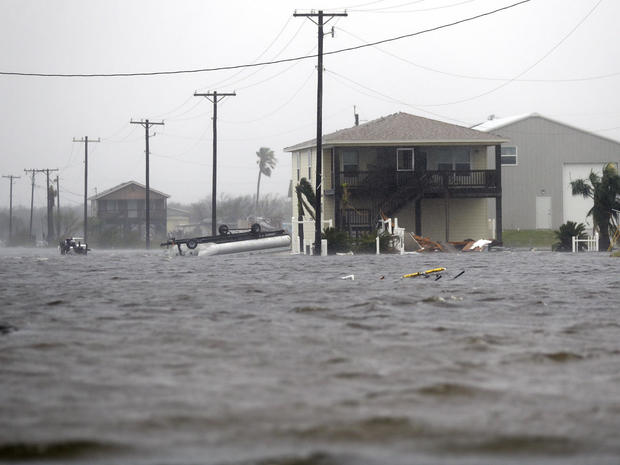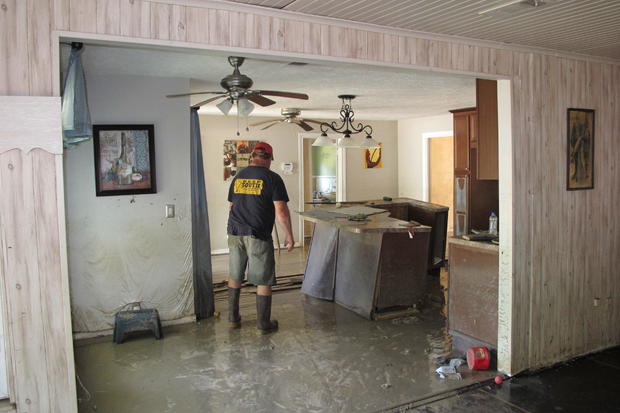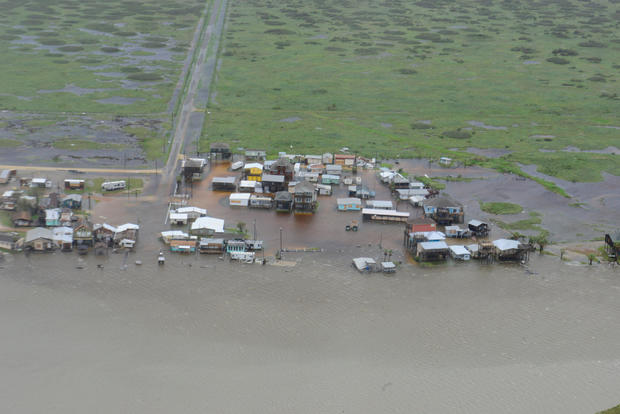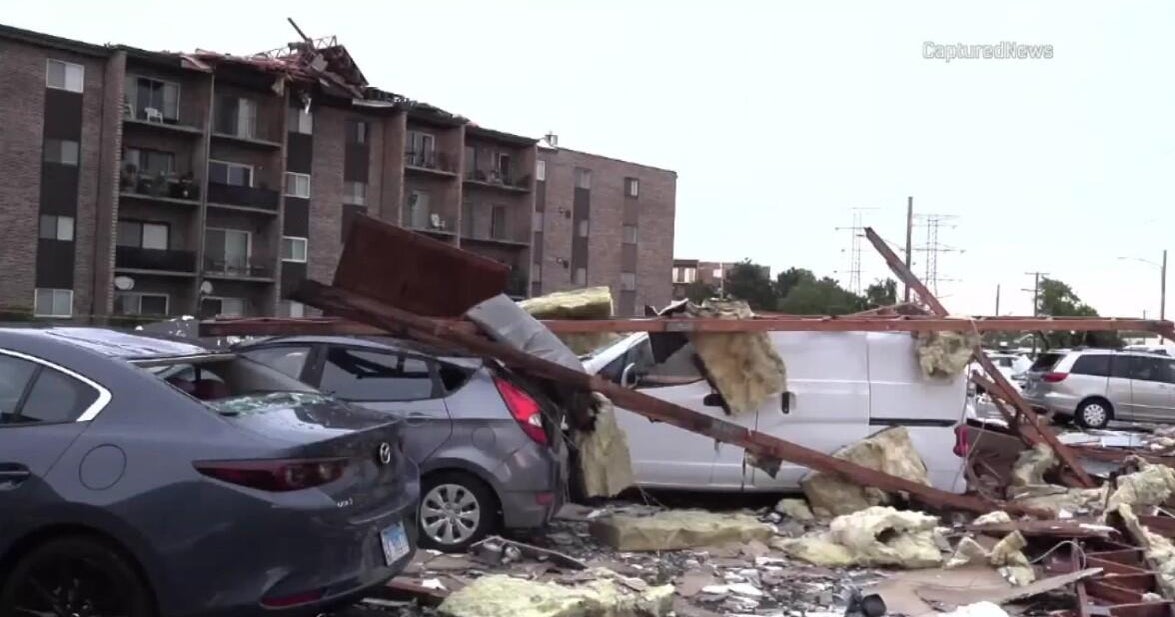Flood damage? 8 problems to watch out for
Hurricane Harvey continues to keep people out of their homes. Experts estimate that the storm has affected nearly 6.8 million Texas residents -- approximately a quarter of the state's population. In Houston alone, the storm has damaged or destroyed an estimated 100,000 homes, and Texans won't be the only ones facing challenges in the wake of this natural disaster.
"Houston is a major market," said Lawrence Yun, chief economist and senior vice president of research at the National Association of Realtors. "It's our fourth-largest metro market in the country and very important, so one cannot dismiss that Houston will have a national economic impact."
What Yun described as the "pause" between the end of the storm and the beginning of longer-term recovery efforts is likely to have an immediate impact on U.S. GDP.
"I think the GDP will slow down by maybe a quarter percentage point," Yun said. However, he continued, the recovery phase could boost GDP by more than a quarter percentage point.
While economic measurements like GDP can be helpful in certain contexts, the devastation residents of Texas, Louisiana and other areas face is likely to last longer than a few months. Those who have lost jobs, cars, homes and other assets (and worst of all, loved ones) could contend with a more difficult road ahead.
On top of personal and financial struggles, those beginning to rebuild may be forced to grapple with labor and material shortages and unscrupulous contractors hoping to profit from a disastrous situation.
The latest "job numbers show that the total job addition in the construction industry is just minimal," said Yun. "It will be a tougher situation in this natural disaster, possibly, compared to other natural disasters."
Rebuilding a home after a flood is always a challenge, but in the case of the flooding following Hurricane Harvey, homeowners can expect to encounter some unique hurdles. Here are eight problems those hoping to rebuild after a flood should look out for.
Health and safety risks
"[Homeowners] need to make sure it's safe," said Granger MacDonald, a Texas-based builder and developer and the National Association of Home Builders' 2017 board chairman. "Safety is always going to be number one."
Homeowners on the Gulf Coast took the brunt of Hurricane Harvey, with most of their damage caused by wind and rainwater. However, according to MacDonald, that's very different from the kind of damage homeowners in Houston and other surrounding areas faced. Their problems were primarily caused by rising water during and after the heavy rainfall.
"They're really almost like two separate events," MacDonald said, "which is what makes this the most peculiar storm on record."
Health and safety risks
Homeowners need to be careful that their homes didn't suffer any structural damage before entering them. They should also be cautious around standing water near power sources, regardless of whether the power has gone out. Third, they should make sure their air conditioners are free of water before turning them back on.
"That could cause more damage to it, or to you -- if you're standing too close to it," said MacDonald.
MacDonald also encouraged homeowners to get everything that's wet out of the house to avoid mold and mildew. That includes carpeting, wall boards and the insulation behind it. Don't risk salvaging material that looks dry but is located in a wet environment. Hidden water could still cause mold.
Failing to notify the right people
Most homeowners know to contact their insurers immediately after damage to their home, but they should also reach out to several other people in the event of a natural disaster like Hurricane Harvey.
Homeowners don't stop owning a home just because it's uninhabitable. Mortgage payments, utility bills and other recurring expenses won't stop on their own during this period of recovery and rebuilding.
"Any time there's a natural disaster event that people clearly recognize is not the homeowner's fault, there will be some relief," said Yun. But you might have to seek it out.
Failing to notify the right people
Fannie Mae, Freddie Mac and the Federal Housing Administration have implemented a 90-day foreclosure suspension and a 90-day eviction suspension for borrowers with properties in FEMA-declared disaster areas. Homeowners could also qualify for a forbearance on their mortgage for up to six months.
Of course, it's the responsibility of homeowners to contact their mortgage lender to talk about postponing payments.
Homeowners should also get in touch with their utility companies to see what sort of assistance is available. Racking up extra debt during the rebuilding process can only cause more problems for homeowners, and these payments probably won't be paused automatically.
Failing to prevent further damage
In addition to removing wet material that could cause mold or mildew, homeowners should be careful to protect their homes from further post-storm damage. In fact, most insurance policies require homeowners to take steps to do what's reasonable and safe to prevent additional damage to their property.
Failing to prevent further damage
That includes things like boarding up broken windows and covering damaged roofing with tarps. Not doing so could affect how much homeowners receive from their insurance claim. It could also cause them to be denied coverage for further damage.
A structural engineer or home inspector can help homeowners determine if their home suffered any structural damage that could cause additional problems as they wait to begin work.
Being un- or under-insured
A serious challenge for Texas homeowners will be the fact that most people did not have the right insurance coverage before the storm. Standard homeowners policies don't cover flood damage, and much of the area by Hurricane Harvey slammed falls outside of the designated zones that require homeowners to purchase flood insurance from the National Flood Insurance Program (NFIP).
"Only 12 percent [of homeowners] buy coverage nationwide anyway," said Loretta Worters, vice president of communications at the Insurance Information Institute. "This is what's frustrating to insurers. We're trying to educate people on the need to get flood insurance."
Since homeowners need to have flood insurance for 30 days before they can make a claim, uninsured homeowners will have to look to other sources for assistance when it comes to paying for repairs or rebuilding.
Being un- or under-insured
"The federal government offers grants through the Small Business Administration, believe it or not," said Worters, "and also low-interest loans. But they're just that: They're loans, and they need to be paid back."
Policies through the NFIP cover up to $250,000 on the structure of a home and $150,000 on the contents (with limitations, including covering possessions that were stored in a below-ground basement). Depending on the extent of the damage, homeowners might have to pull funds from multiple sources, including their own savings, to take care of damage.
The slow claims process
Insurance claims are never an immediate process, but the scale of the damage caused by Hurricane Harvey could add extra time to completing one and receiving money.
"The most difficult and most damaged properties will be looked at first, once they can get into those areas," said Worters. "There are some areas [adjusters] are looking at that haven't had that kind of damage, because they can get into those areas. Typically, it takes about 60 days, but it can be longer since it's so widespread and so massive."
The slow claims process
The best thing homeowners can do is contact their insurer as soon as possible and take pictures of the property to have available during the claims process, according to Worters.
Homeowners should talk to their insurer about any repairs that must be done immediately (such as boarding up windows to prevent further damage) and discuss what should and shouldn't be done before an adjuster can inspect the property.
The precarious position of emergency funding
Funding for the federal government expires this month, which could pose extra hurdles for homeowners trying to secure the financial assistance for repairs. The NFIP is one organization that will need to be reauthorized. On top of that, the deadline for raising the federal debt ceiling also hits this month.
The precarious position of emergency funding
It's still unclear how the the NFIP and other government assistance -- like individual relief bills that Congress can provide after major disasters -- will be affected.
Homeowners relying on aid from these organizations should prepare for the possibility of additional delays in receiving funds and starting work.
A scarcity of labor and building materials
Here's another problem for homeowners looking to rebuild quickly once the water recedes: a shortgage of skilled labor. According to a recent survey conducted by the National Association of Home Builders, labor and subcontractor shortages became even more widespread in July 2017 than they were in June 2016, the last time the survey was conducted.
"We're already experiencing labor and material issues," said MacDonald. "We've got a new Canadian softwood lumber tariff that was put on this year that's only going to add to the prices. You're going to have shortages of workers and material in all these areas."
A scarcity of labor and building materials
This will likely make materials and services more expensive, as supply struggles to meet demand, lengthening the time it will take homeowners to begin and complete rebuilding efforts. Increases in immigration-restricting legislation and raids conducted by U.S. Immigration and Customs Enforcement might also diminish the number of skilled laborers available to fill open positions.
"When it gets down to it," said MacDonald, "everybody's going to have delays, and no one's going to get their home rebuilt as fast as they would like to have it done. That's just going to be part of the sad aftermath of this hurricane."
The prevalence of scams
Homeowners will understandably be eager to begin repairs and return their lives to normal as quickly as possible. Unfortunately, this could make them more vulnerable to fraudsters.
Scammers known as "storm chasers" commonly appear after natural disasters like Hurricane Harvey, promising to do quick work for upfront payments.
"Stay away from someone who says a contract won't be necessary," said MacDonald. "Stay away from someone you can't get a reference on."
The prevalence of scams
Homeowners should make sure that potential workers have a phone number and office address. It's important to check credentials and references before hiring anyone to do work on a house and to get two or three different estimates, if possible.
MacDonald encouraged eager homeowners to check with their insurance companies for recommendations. Homebuilder associations also have lists of local contractors, and MacDonald said homeowners are always welcome to call their local association with questions.

